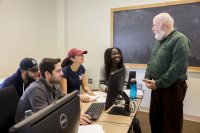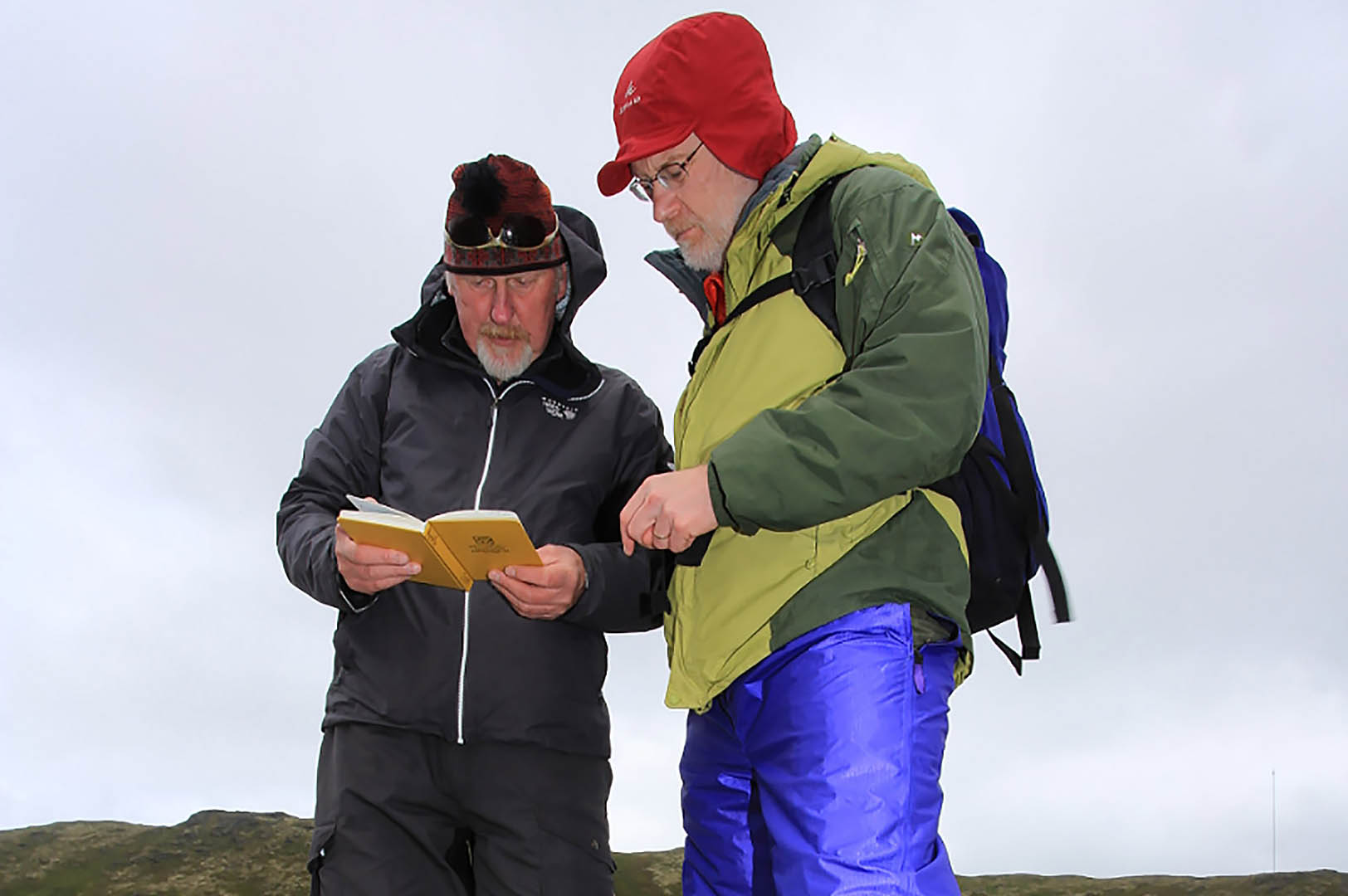
2010 Kroepsch award for teaching excellence goes to economics professor
James Hughes, Thomas Sowell Professor of Economics at Bates College, has received the Ruth M. and Robert H. Kroepsch Award for Excellence in Teaching.
Hughes has taught at Bates since 1992. He teaches microeconomic theory and economics as it intersects with law, labor, health, the environment and gender. His areas of research include labor, health, and law and economics.
In connection with the award, Hughes gives a talk titled Wait a Minute — YOU Won the Teaching Award? at 4:30 p.m. Tuesday, March 30, at the Edward S. Muskie Archives, 70 Campus Ave. Sponsored by the Kroepsch Award Selection Committee, the college division chairs, Information and Library Services, and the dean of the faculty’s office, the event is open to the public at no charge.
“What just keeps me coming back to teaching is how much I learn through it,” Hughes says. “If there’s one big surprise that I’ve had in my career, it’s that, even though I might teach the same course over and over, not a semester goes by when I don’t find myself learning something new, learning how to explain something a little better, understanding what I’m teaching more deeply.”
“That’s what keeps it fresh and keeps it fun.”
Hughes, of Waterville, “is one of the brightest minds here,” says one of his students, senior economics major Daniela Jaeckel of White Plains, N.Y. “It’s not surprising that his classes are always hard to get into.”
“He has been the clearest professor I’ve had at Bates,” adds junior Brendan O’Brien of Mont Vernon, N.H. “He creates examples of ideas that students can relate to in order to keep their interest during lectures. And he manages to be incredibly humorous while conveying important points.
“Hughes challenges students to actually understand the material rather than just robotically spit it back.”
“There are a lot of great things about teaching in a small college environment like Bates,” says Hughes. “The best thing, I think, is that you’re teaching students who want to be there, who are highly motivated to learn, who have strong backgrounds in what you’re trying to teach.”
Hughes has conducted research on sex discrimination in labor markets in the U.S. and China. His research into fee-shifting on litigation outcomes culminated in an invitation to contribute an entry on the subject to The New Palgrave Dictionary of Economics and the Law.
With his wife, Debra Barbezat, Mitchell Family Professor of Economics at Colby College, Hughes is researching the disappearance of African-American jockeys from thoroughbred racing at the turn of the 20th century.
“These jockeys were the most successful athletes in the most popular sport of the day in the late 19th century,” he says. “By 1905, African-Americans were all but gone from the sport. We want to identify these men, and learn how such a fully integrated sport was so rapidly and thoroughly segregated.”
“Teaching economics anywhere, you have to get across that this matters in people’s lives,” he says. “What I try to do with every concept, no matter how simple or obscure, is to try to make it clear that what we’re talking about comes up in the real world and that it makes a difference.
“It’s possible to use very simple economic tools to learn about very difficult problems, and if my students leave the classroom feeling that they can reflect on what’s going on in the world as an economist, even a little bit, then I think my teaching’s been quite successful.”
Hughes received his doctorate in economics from the University of Michigan in 1987, and his bachelor’s and master’s degrees at Boston University. Prior to coming to Bates, Hughes was on the faculty at Amherst College and The State University of New York at Albany.
Hughes is a blues fan, and builds guitars as a hobby. “I wish that I played beautifully and made ugly guitars, but it turns out I play poorly and build beautiful guitars,” he says. “So now I spend most of my free time building guitars, and not as much time as I used to playing them.”
Each year Bates students and recent alumni nominate Kroepsch Award recipients on the basis of their outstanding performance as teachers. Each year a committee of previous recipients selects the Kroepsch honoree from the list of nominees.




